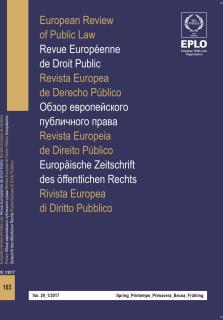
Migration, State Border and Democracy
Professor Dr., University of Jena
The refugee crisis clearly demonstrated the failure of the European border security and migration policy. This is especially alarming since the European Union law is guided by the notion that migration and border security are inseparably linked with each other. This development finally led to the relapse of the border protection into the Member States’ competences, which means that the competences once conferred on the European Union are being transferred back to the Member States, resulting in the renaissance of the state borders. However, in the long run such unsatisfactory state of affairs can only be brought to an end if the European Union manages to effectively protect its external borders on a permanent basis. Moreover, public international law does not recognise any general or unlimited right to migration beyond the ‘non-refoulement’ principle. Therefore, it is up to the Member States to grant access to their national territories according to their Constitutions by either granting national asylum or using other mechanisms covered by the national immigration legislation.
La crise des réfugiés a mis en évidence l’échec de la sécurité des frontières européennes et de la politique migratoire. C’est particulièrement alarmant parce que le droit communautaire européen est régi par l’idée que migration et sécurité des frontières sont indissociablement liées. Les événements ont abouti à faire revenir la protection des frontières dans les compétences des Etats membres, ce qui signifie que les compétences naguère conférées à l’Union européenne sont à nouveau dévolues aux Etats membres, entraînant la renaissance des frontières. Cependant, à long terme, cet état de choses insatisfaisant ne peut que se terminer si l’Union européenne parvient à protéger efficacement ses frontières extérieures en permanence. De plus, au-delà du principe du “non-refoulement”, le droit international public ne reconnaît pas de droit général et illimité à la migration. Par conséquent, il appartient aux Etats membres de garantir l’accès à leurs territoires nationaux conformément à leurs Constitutions, soit en garantissant un asile national, soit en usant d’autres mécanismes couverts par la législation sur l’immigration nationale.





















